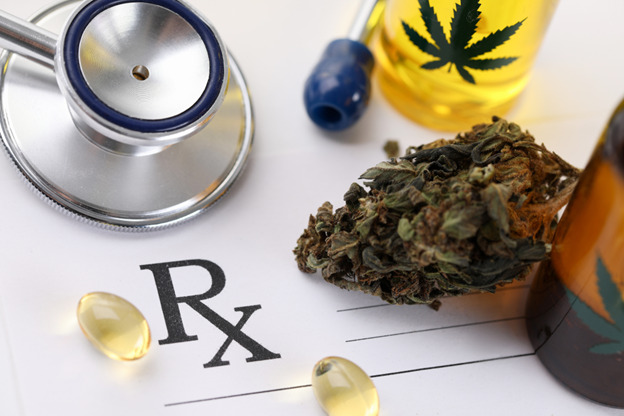Common Alcohol and Cannabis Drug Interactions You May Not Know About
We’ve talked at length about the effects of alcohol or cannabis on driving, and about the physical and mental effects of combined alcohol and cannabis use that affect your ability to operate a vehicle.
However, while many individuals might be aware of the dangers of consuming alcohol or cannabis alone, fewer may understand the compounded risks when these substances interact with common prescription or over-the-counter medications. Both legally prescribed and recreationally used substances can cause alcohol/cannabis drug interactions you may not know about.

ALCOHOL AND DRUG INTERACTIONS
Alcohol, being a depressant, has widespread effects on the body and brain. When mixed with other substances, its influence can alter how medications work, often reducing their efficacy or exacerbating their side effects.
Alcohol and Prescription Medications
Many people take medications daily for chronic conditions. Adding alcohol into the mix can lead to several risks, including:
- Opioids (painkillers): Both alcohol and opioids are central nervous system depressants, which means they can slow down vital bodily functions, such as heart rate and breathing. When taken together, the risk of overdose increases significantly, as both substances can suppress breathing to dangerous levels, damaging your brain and other organs and even leading to death.
- Antidepressants (SSRIs, MAOIs): Alcohol is a depressant that can counteract the effects of antidepressants. Mixing the two can increase feelings of sadness or hopelessness, heightening the risk of suicidal thoughts. In particular, combining alcohol with MAOIs (monoamine oxidase inhibitors) can lead to dangerously high blood pressure.
In addition, the combination of alcohol and antidepressants will affect judgment, coordination, reaction time, and motor skills more than alcohol alone, impairing your ability to drive or do other tasks that require focus and multitasking.
- Antibiotics: While not all antibiotics interact with alcohol, some, such as metronidazole, can lead to nausea, vomiting, and rapid heartbeats when mixed with alcohol.
- Blood thinners (warfarin): Alcohol can increase the effects of blood thinners, leading to an increased risk of life-threatening bleeding and other complications. It can also make it harder for blood to clot, posing serious risks in case of injuries.
Alcohol and Over-the-Counter Medications
- Pain relievers (acetaminophen, ibuprofen): Acetaminophen (Tylenol) is metabolized in the liver, as is alcohol. Combining the two can overload the liver, potentially leading to liver damage. Nonsteroidal anti-inflammatory drugs (NSAIDs), like ibuprofen, increase the risk of stomach bleeding when mixed with alcohol.
- Antihistamines (allergy medications): Many allergy medications, like diphenhydramine (Benadryl), can cause drowsiness on their own. When combined with alcohol, this drowsiness can become extreme, impairing coordination and increasing the risk of accidents.

CANNABIS (MARIJUANA) AND DRUG INTERACTIONS
Cannabis, with its psychoactive compound Delta-9-tetrahydrocannabinol (THC), affects the brain differently than alcohol. While some use it recreationally or for medicinal purposes, its interactions with other medications can also pose significant risks, some known and some unknown.
Cannabis and Prescription Medications
- Antidepressants: Like alcohol, cannabis can also have mood-altering effects. Combining it with antidepressants like SSRIs can lead to heightened side effects, including dizziness, confusion, or increased anxiety.
Cannabis blocks the enzyme CYP2D6, which can increase the concentrations of SSRIs, TCAs, and other drugs in the blood, raising serotonin to dangerous levels. Serotonin syndrome is a potentially lethal illness caused by elevated serotonin levels in the body due to SSRI use.
- Blood pressure medications: Cannabis can lower blood pressure, and when combined with medications designed to manage blood pressure, it can lead to dangerously low blood pressure, dizziness, and fainting.
- Sedatives (benzodiazepines): Mixing marijuana with sedatives like benzodiazepines (e.g., Xanax or Valium) can increase sedation, leading to excessive drowsiness, slowed breathing, and impaired motor skills.
- Anti-seizure medications: There is ongoing research into the interaction between cannabis and medications used to treat epilepsy, such as valproic acid or clobazam. However, early studies indicate that cannabis can either enhance or reduce the effectiveness of these drugs, depending on the dosage and frequency.
Cannabis and Over-the-Counter Medications
- Sleep aids: Many over-the-counter sleep aids contain diphenhydramine, a substance that already causes drowsiness. Combining this with cannabis can lead to excessive sedation, confusion, and impaired coordination.
- Cold and flu medications: Many cold and flu medications contain decongestants or antihistamines, which can interact with cannabis to cause increased drowsiness, dizziness, or rapid heart rate.
UNDERSTANDING THE RISKS: IMPAIRMENT AND ACCIDENTS
One of the biggest concerns with combining alcohol, cannabis, and medications is the increased risk of impaired driving or accidents while operating heavy machinery. Both alcohol and cannabis can independently impair judgment, reaction time, and motor skills. When mixed with other drugs, these effects can become even more pronounced, dramatically increasing the chances of crashes.
- Alcohol and cannabis together: This combination, known colloquially as “crossfading” and technically as “polyconsumption,” can be particularly dangerous. While alcohol is a depressant and cannabis is often seen as a stimulant in low doses, when combined, they can confuse the body’s signals. This may result in extreme drowsiness, nausea, dizziness, and a total lack of coordination.
- Mixing medications with alcohol or marijuana: Even common over-the-counter medications like cold medicine, when combined with alcohol or cannabis, can impair your ability to react quickly to hazards on the road. These impairments can increase the likelihood of accidents, endangering both the driver and others. In Colorado, you can be charged with a DUI for consuming any impairment-causing substance, including OTC medications.

TAKEAWAYS FOR SAFE USE
- Consult Your Doctor: Always speak with your healthcare provider about potential interactions between your prescribed medications and alcohol or cannabis. They can offer advice tailored to your specific health needs.
- Follow Dosage Instructions: Stick to recommended dosages for medications, and avoid using alcohol or cannabis while on drugs unless cleared by your doctor.
- Be Cautious with New Combinations: If you’re trying a new medication, avoid alcohol or cannabis until you know how the drug affects you. Then, try any new combinations in a safe environment and avoid getting behind the wheel.
- Know the Laws: In Colorado, driving under the influence of drugs, including medications or cannabis or alcohol combined with other medications, is illegal and punishable by law. All DUIs in Colorado, regardless of impairing substance, carry the same legal weight and consequences.
Both alcohol and cannabis have well-known effects when consumed alone. However, fewer people are aware of their potential interactions with other common medications. Understanding the risks can help you make safer choices, reducing the likelihood of harmful side effects, injuries, or death. Always practice caution when mixing substances to safeguard your health and well-being and the well-being of those around you.
No DUI Larimer encourages all of our readers: Educate yourself about how substances affect you and how you can avoid driving impaired – take charge of your future. Make the Right Call.
Follow No DUI Larimer on Facebook, Instagram, and Pinterest for more ways you can combat impaired driving in our community.

![Partners [Logo Reversed]](https://poweredbypartners.org/wp-content/uploads/2020/06/partners-horiz-no-tag-sm-rgb-color-purple.png)